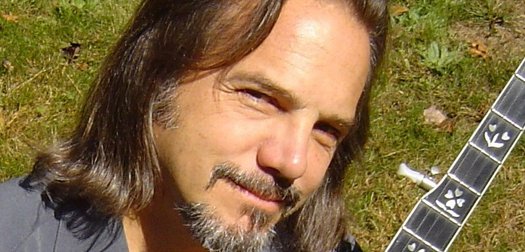|
|
|
|
 |
||
|
|
|
Gordon: It was just the drums at first. We just let them do their thing. And then Erik [Lawrence] and I went in later and improvised over it together so that in that process we had some spontaneous stuff happening. Sounds like some kind of old jazz.
Yeah‚ that's what I was thinking as well.
Gordon: Old out jazz. Did you like that piece?
Yeah‚ I really liked it. I was wondering if there was more of that going on during the session.
Gordon: Yeah‚ I would love to do more of that‚ but you don't get much of an audience with that‚ you know? We're already stretching it pretty thin‚ audience wise.
Yeah‚ I know. [laughs] I was actually wondering if you would actually consider putting some of that stuff out there.
Gordon: Oh‚ you mean outtakes and stuff?
Yeah.
Gordon: Yeah‚ that'd be cool.
Jennifer: We haven't listened. It was sort of like focusing all the energy on getting this released and out and supported.
Do you think in putting together the record there was a lot of good stuff that maybe you should have put on the record?
Gordon: There's one tune that we bailed on‚ but we have rhythm tracks to it. So we could do something with that. And there's another piece that was completed‚ but had been so overworked that it just didn't sound good anymore; too much stuff added on and taken back off. Every time we tried fixing it‚ it just sounded worse.
You kind of lost the magic of the piece? That's interesting because I think the amazing thing about the record is that it covers a lot of ground and it doesn't sound disjointed at all.
Gordon: No‚ which is good that it flows.
You have the out jazz thing going‚ and this bluegrass feel‚ there's even country rock. Even that banjo tune on its own‚ "Jelly Cake."
Gordon: Which is basically an intro into the next tune.
And it sounds like there's a lot of deliberation in the process too.
Gordon: It's tricky to keep a spontaneous feel when you're working over and over on it. I can only do like three takes on anything before it gets worse. Somewhere within the first three takes I get the keeper. And I've tried twenty or thirty takes‚ and I say‚ "Oh no‚ I'll get it." I just stop after those three takes because that's all that's gonna happen. Of course‚ I come back the next day and start over again. I do three takes a day.How many times do you hear about these guys who do albums and stretch it out and say‚ "Oh‚ we'll get back to it." Then they finish recording and they say we'll mix it in six months. And it never comes out‚ and when it does come out it's so stale it takes the life right out of it. There's a local musician who has many‚ many projects sitting on tape or in his computer. Some really great stuff that's never gonna come out because he couldn't quite finish. Not me. He's a victim of his own undoing. There's a Chrome Cowboys record from five years ago. It was great. Everything was done. Well… it never got mixed‚ so it never quite got finished.
That's what a producer's for or someone to have the outside perspective to say‚ "You're done." For Night Shade you recorded up at The Barn in Westford‚ VT -- it's beautiful up there. Did you take anything from the vibe?
Gordon: Yeah‚ the sound too. We had boom mics that were up too. That was an important thing. It was that sound and also two-inch tape. We ran two-inch tape to get that natural compression.
That's the main part of that project. We're rehearsing with him (Pape Ba) and some African dancers and drummers.
Have you done a project like this before?
Gordon: No.
Must be cool to see it roll along.
related articles
Shows: Mountain Jam 2006
Shows: Mike Gordon and Ramble Dove: Honky Tonk the Vote
Features: From Honky Tonk Tuesday to Ramble Dove: Heaven is a Honky Tonk
More on: Gordon Stone
Shows: Mountain Jam 2006
Shows: Mike Gordon and Ramble Dove: Honky Tonk the Vote
Features: From Honky Tonk Tuesday to Ramble Dove: Heaven is a Honky Tonk
More on: Gordon Stone
